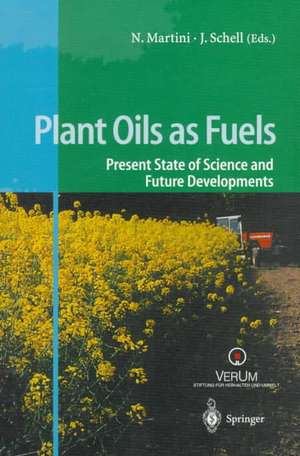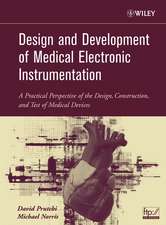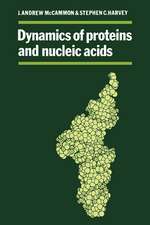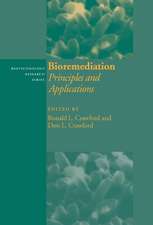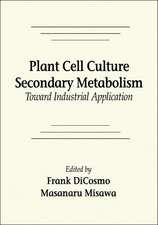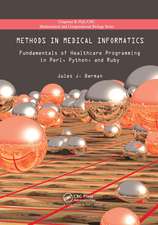Plant Oils as Fuels: Present State of Science and Future Developments
Editat de Norbert Martini, Jozef S. Schellen Limba Engleză Paperback – 3 sep 1998
Preț: 640.06 lei
Preț vechi: 753.01 lei
-15% Nou
Puncte Express: 960
Preț estimativ în valută:
122.49€ • 127.41$ • 101.12£
122.49€ • 127.41$ • 101.12£
Carte tipărită la comandă
Livrare economică 15-29 aprilie
Preluare comenzi: 021 569.72.76
Specificații
ISBN-13: 9783540647546
ISBN-10: 3540647546
Pagini: 288
Ilustrații: IX, 276 p. 37 illus., 2 illus. in color.
Dimensiuni: 155 x 235 x 15 mm
Greutate: 0.41 kg
Ediția:Softcover reprint of the original 1st ed. 1998
Editura: Springer Berlin, Heidelberg
Colecția Springer
Locul publicării:Berlin, Heidelberg, Germany
ISBN-10: 3540647546
Pagini: 288
Ilustrații: IX, 276 p. 37 illus., 2 illus. in color.
Dimensiuni: 155 x 235 x 15 mm
Greutate: 0.41 kg
Ediția:Softcover reprint of the original 1st ed. 1998
Editura: Springer Berlin, Heidelberg
Colecția Springer
Locul publicării:Berlin, Heidelberg, Germany
Public țintă
ResearchCuprins
The Biodiesel Market Today and its Future Potential.- Discussion.- Session 1: Engines for Natural and Modified Plant Oil-Based Fuels.- Engines for Natural and Modified Plant Oil-Based Fuels.- The Automotive Industry’s Views of the Standards for Plant Oil-Based Fuels.- Vegetable Oil Fatty Acid Methyl Esters as Alternative Diesel Fuels for Commercial Vehicle Engines.- Diesel Engine Technologies for Raw and Transesterified Plant Oils as Fuels: Desired Future Qualities of the Fuels.- Exhaust Components of Biofuels Under Real World Engine Conditions.- Discussion of Session 1.- Session 2: Toxicological and Environmental Aspects Related to the Use of Plant Oils as Fuels.- Toxicological and Environmental Aspects Related to the Use of Plant Oils as Fuels.- Health Issues Concerning Inhalation of Petroleum Diesel and Biodiesel Exhaust.- Biodiesel Exhaust Emissions and Determination of their Environmental and Health Effects.- The Mutagenic Potential of Diesel and Biodiesel Exhausts.- Biodiesel: Effects on Exhaust Constituents.- Toxicology and Ecotoxicology of Biodiesel Fuel.- Discussion of Session 2.- Session 3: Contribution of Plant Breeding for Making Biodiesel Rapeseed a Realistic Proposition.- Contribution of Plant Breeding for Making Biodiesel Rapeseed a Realistic Proposition.- Breeding of Hybrid Rapeseed.- Pollination Control in Transgenic Rapeseed: from Concept to Market Entry of Fl Hybrids.- Rapeseed with Tolerance to the Non Selective Herbicide Glufosinate Ammonium.- Plant Biotechnology and Implications for Rapeseed Agronomy: Development of New Methods of Pest and Disease Control.- Modification of Fatty Acids by Genetic Engineering.- Breeding of High-Oleic-Acid Rapeseed (HOAR).- Genetic Engineering of Brassica napus Seeds for Oil Quality and Yield with Toxicological andMotor-Technical Aspects ofBiodiesel in Mind.- Discussion of Session 3.- Roundtable Discussion.
Textul de pe ultima copertă
This volume contains the papers presented at the Symposium having the same name held in Potsdam, Germany, February 16-18, 1997. The symposium was intended as a forum for economists, engineers, ecologists and toxicologists to present and exchange their ideas for improving the product Biodiesel and to discuss these views with expert plant bioscientists. The challenge for the latter was and will be to determine whether biotechnical methods can be applied safely to introduce new properties into the rape plant, an example for a number of other plants also suitable for production of renewable energy. The properties concerned are those which will improve the product Biodiesel fuel economically, technologically and especially toxicologically such that it will then possess those characteristics identified as the most desirable by the scientists. It was, therefore, not the goal of the symposium to evaluate Biodiesel as a form of energy under the present conditions, but rather to find an answer to the question of the chances Biodiesel will have in the market of the future.
